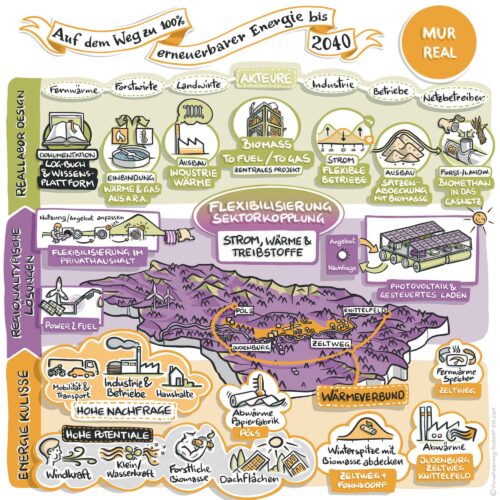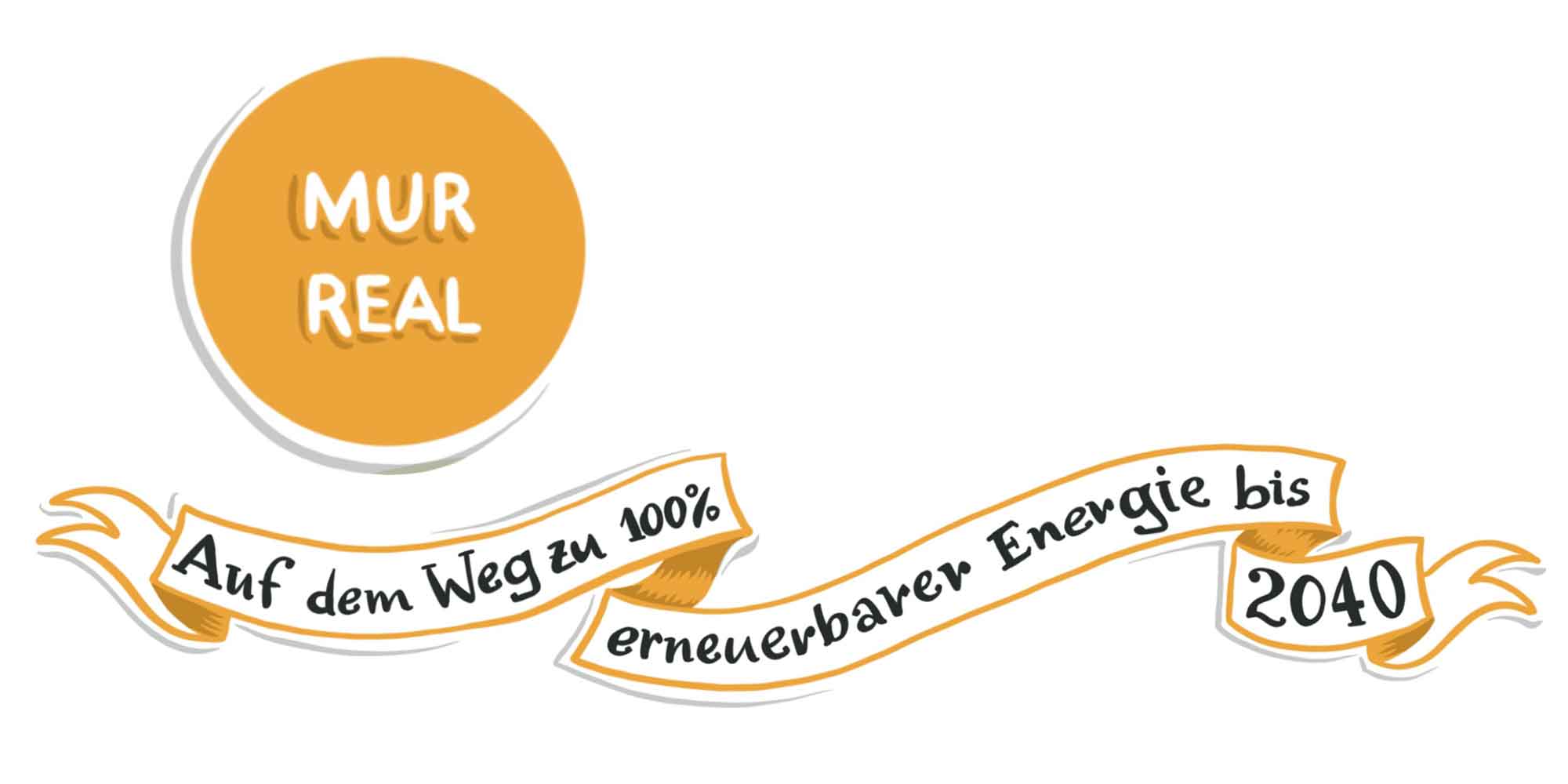The district of Murtal in Styria is an industrial region made up of 20 municipalities and home to a large number of high-tech companies. The surrounding countryside offers significant potential for supplying renewable energy in the form of biomass, hydropower and wind and solar power. However, its energy demand is also disproportionately high on account of all the industry based there.
The exploratory study worked to identify development pathways, synergy effects and business models for a living laboratory for 100% renewable energy with an eye on the specific challenges posed by the region.The focus is on a cross-sectoral energy system that taps into the region’s potential for renewable energy and utilises waste heat from its industrial companies. The project analysed options for regulating loads and increasing flexibility in several sectors – e-mobility, businesses, residential property, and generating energy from biomass. Waste heat produced by one firm, Zellstoff Pöls AG, is already being exploited and is being piped from in and around the town of Aichfeld as far as Knittelfeld via a district heating system.
Additional heat is being supplied by the Zeltweg biomass heating plant, which boasts a large storage system. The possibility of linking in more companies and their potential for contributing waste heat were investigated and evaluated, as was sector integration using biomass gasification with Fischer-Tropsch diesel production and bio-synthetic natural gas grid infeed. Organisational and financial aspects of a living laboratory were also explored in addition to the technical questions.

